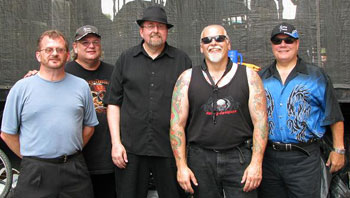
This is a novel about waste and abuse, the ways in which self-hatred radiates through a person and poisons his ability to honestly connect with others. But there is no conversion narrative here, and no attempt to draw grand conclusions about society from this one character’s physical and existential torment. In his foreword to this edition, critic Gerald Early positions Blueschild Baby among the era’s many black classics of self-education including Manchild in the Promised Land, Soul on Ice, and The Autobiography of Malcolm X Cain’s dedication even includes an Arabic phrase, “Al-hamdu-li-la” (“All thanks to Allah”), that implies his life has changed. Over the course of a few days, his narrator, also named George Cain, muddles through the familiar paces of addiction literature: desperate attempts to score, harrowing attempts to quit, and a series of degrading violent episodes including an attempt to rape his daughter’s babysitter. Heroin undid him, and Blueschild Baby is the record of that undoing. And Cain was a quintessential rose grown from concrete: A gifted basketball player, he attended private high school and received a college scholarship that appeared to be his ticket out of the urban underclass. McPherson was a studious son of working-class parents who ascended to Harvard Law School. The teenage Wright was a prolific hitchhiker who thumbed his way through the Southwest to California before serving in Korea and moving to New York. Their early lives were even more varied than the geographic differences might imply. “I hope he goes the distance and lives to be 110.”Ĭharles Wright was born in rural Missouri in 1932, 11 years before James McPherson and George Cain were born in Savannah, Georgia, and Manhattan, respectively. “Charles Wright is a terrific writer,” Baldwin wrote, having already listed The Messenger among Dostoyevsky, Henry James, and Richard Wright in a 1964 list of formative reading experiences. His three books- The Messenger (1963), The Wig (1966), and Absolutely Nothing to Get Alarmed About (1973)-had been successes by any reasonable measure: published by Farrar, Straus and Giroux reviewed in the New York Times and praised by James Baldwin, whose enthusiasm was quoted at length on the back cover of the new volume. In 1993, when HarperCollins released an omnibus edition of Charles Wright’s slim, hallucinatory novels of the 1960s and ’70s, the author hadn’t published any new fiction in two decades.

The Woman Behind Bridgerton Would Like to Explain Those Controversial Remarks



A Q&A With the Author Whose Book Is Rocketing up the Charts Thanks to a Tweet From “Bigolas Dickolas”


 0 kommentar(er)
0 kommentar(er)
